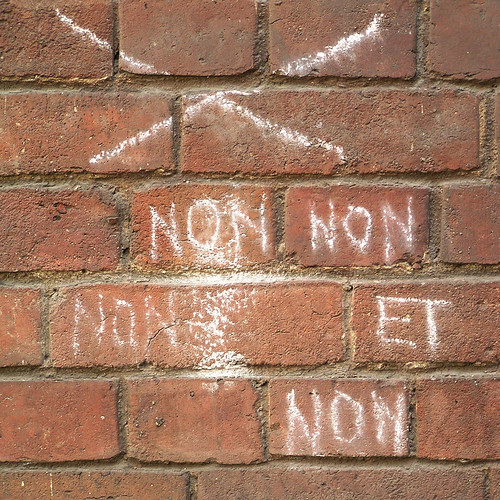
Don’t do it. You’re not going to think of a solution no one else has, your approach is not as innovative as you think it is, and raising money is going to be impossible. You will have no economy of scale, your overhead will be disproportionately high, and adding one more tiny NGO to the overburdened international system may well make things worse instead of better.
Now that you’ve ignored me, here’s the rest of my advice:
1) Make your bones. Go work for an existing NGO that addresses the same problem, or one like it. Learn from the existing knowledge in the system so you don’t waste time re-inventing the wheel. If you’re not qualified to work for an existing organization, you’re probably not qualified to run your own.
2) Identify a new funding source. If you’re just going to compete for the same donor RFPs and RFAs that everyone else does, you’re not bringing anything new to the world. If you didn’t get that grant to reduce child mortality in Liberia, another organization would. The children of Liberia benefit equally either way. If you can bring new money in, then you’re having a genuine additional impact.
3) Hire experienced people to work with you. There is a certain charm to a bunch of inexperienced people trying to change the world together, but a group that combines new ideas and actual experience can produce genuine innovation.
4) Your finances are probably the most important part of your NGO. Your donors will want to see your financials before they give. Your projects will require a steady stream of reliable funding to succeed. You can’t do good if you can’t pay your bills.
(photo credit Mosieur J.)

5) Make a plan of what you want to achieve. Be realistic on that.
6) Apply for a licence in the respective country you want to work in and date it back to 2000.
Amen! I wish people would focus more on collaboration and recognizing the difference between wanting to start a new program versus wanting to start a new organization! There is a lot of work involved and quite frankly the field is a little cluttered.
I think there’s an ego gratification to starting your own organization that can blind people to the practical realities, like making a plan or deciding if it is truly necessary.
I’d like to see NGOs choose to shut down. To hear someone say, for once, ‘We’re done here’ and close. There is no shame in that,on the contrary: I think there is honour in recognising that a] you are duplicating what is being done, and not being so egotistical as to think you have to keep going; or b] that others are doing the job better than you; or c] you have fulfilled your mandate and it is time to close shop and go home. As it is, most NGOs are like presidents: they are voted out on a low, they don’t leave on a high. They die slow deaths of irrelevance and inefficiency.
Phil, that’s a really good point. I’d also like to see more NGOs merge to avoid unnecessary duplication.
Well said Alanna! And Phil great point…the analogy that NGOs are similar to politicians is right on point.
[…] In the rush to engage on Haiti, a lot of well-meaning groups are jumping in to help. Some are brand new, and some have never worked on a disaster like this before. Most of these groups are going to be useless. Some will actually do harm to themselves or others. A tiny minority will have a positive impact. I wish those odds were better, but they’re not. […]
[…] observations like how the work of NGO’s is impeded by a culture of “being nice”, why you shouldn’t even bother starting an NGO and if you choose to anyway, how to succeed. In my view, there’s nothing more ridiculous […]
I disagree. I think in some cases starting an NGO is the only viable option- I agree that starting new NGOs juts for the sake of it can be unnecessary, but sometimes existing NGOs arent addressing certain problems or unwilling to cooperate.
For example,after meeting and working with some amazing children from slum communities in Uganda, I approached several different NGOs, enquiring about them supporting these children but they were uninterested and had their own agendas, own kids to look after.
I never planned on starting an NGO- I simply saw a need and starting an NGO was the best way to help. Since starting the organisation in 2009, we have grown a lot and now work in 11 different communities in Uganda, supporting almost 3000 children, women and young men.
This is a complicated topic since it gets into the individual motivations of the people responsible. There is a big difference between someone in a poor community starting a non-profit (or informal project) and asking for outside support and a rich-community person visiting a poor community and deciding that they are going to help. Non-profit organizations are structural representations of communities, and each community has its own values, personality, and power structure. As Olivia pointed out, there are times when one community’s interests just can’t be satisfied by an existing NGOs structure. There are too many people visiting poor places and coming home to start a non-profit, but there are not enough poor community initiatives supported by outside international community members. These partnerships are long term capacity-building endeavors and should not be entered into lightly.